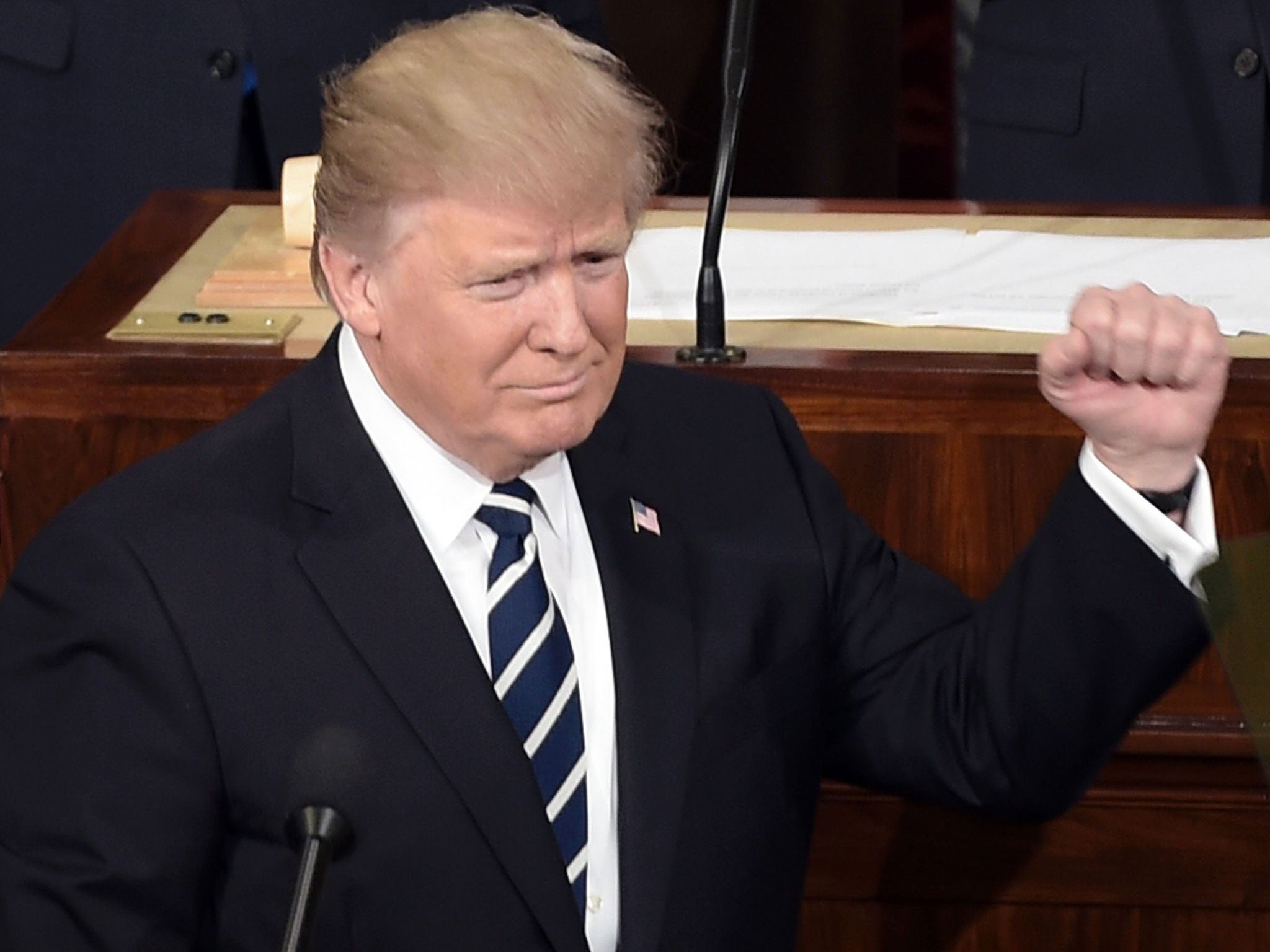Donald Trump ignored his own national security adviser when he used the term 'Radical Islamic terrorism'

During his first speech as president to a joint session of Congress, President Trump said his administration is "taking steps to protect our nation from radical Islamic terrorism."
Months before, on the campaign trail, Trump appeared to revel in his forceful use of the phrase "radical Islamic terrorism," even when his critics grimaced.
Not one to be easily deterred, Trump continued his use of the phrase from the earliest moments of his presidency when he promised to eradicate the threat of radical Islamic terrorism "from the face of the earth" during his inauguration speech.
For Trump and many of his supporters, the phrase has never been just a phrase but a carefully worded departure from the Obama administration's - and the Bush administration's - understanding of the world and the U.S. government's role in combating terrorism.
Former President Barack Obama used the phrase "violent extremism," which severed the violence carried about by terrorists from any immediate association with theology. Trump and many of his associates, meanwhile, have been explicit about their belief that Western democracy is at war with Islam.
"We cannot let this evil continue," Trump said during a September speech in Estero, Florida, that was typical of his campaign rhetoric. "Nor can we let the hateful ideology of radical Islam . . . be allowed to reside or spread within our country. Just can't do it."
"We will not defeat it with closed eyes or silent voices," he added. "Anyone who cannot name our enemy is not fit to lead this country."
Now - with Trump neck-deep in the swamp he has promised to drain - the question on the minds of many security experts is whether the president will continue to use a phrase that his most ardent supporters relish, but that many experts, including his new national security adviser, have recommended he eliminate from his vocabulary.
The first significant test may come Tuesday night, when Trump delivers his first speech as president to a joint session of Congress. The speech arrives only days after Lt. Gen. H.R. McMaster, Trump's national security adviser, urged the president in a closed-door meeting to refrain from using the words "radical Islamic terrorism," according to Politico.
McMaster's reasoning, according to CNN, is that terrorists who profess to act in accordance with Islam aren't true adherents of the religion but anomalies who pervert its teachings. McMaster argued that using the phrase "radical Islamic terrorism" damages the country's ability to partner with key allies, many of whom are Muslim.
"The trouble with the phrase 'radical Islamic terrorism' is that it makes no distinction between the variants that are Sunni and Shiite, which are radically different," said Bruce Hoffman, director of Georgetown's Center for Security Studies. "I think there are important distinctions, and if you say 'radical Islamic terrorism' does that lump in groups like Hamas, for example?"
"The engine that drives policy should always be specific enough to link means to ends," he added.
Trump's use of the phrase not only departs from his immediate predecessor in the White House but also from the Bush administration, which was at the helm during the Sept. 11, 2001, attacks that ushered the United States into its contemporary struggle against terrorism.
During an appearance on NBC News' "Today" show this week, former president George W. Bush reiterated his long-standing position that the terrorism threat is not a religious war but an ideological one.
"I think it's very important for all of us to recognize one of our great strengths is for people to be able to worship the way they want to or to not worship at all," Bush said. "A bedrock of our freedom is the right to worship freely."
During an hour-long phone call with Russian President Vladimir Putin last month, Trump "vowed to join forces to fight terrorism in Syria and elsewhere, according to the White House and the Kremlin, signaling a potential shift in U.S.-Russian relations that have been marked by high tension," according to The Washington Post.
If the partnership deepens, the two leaders may have to confront Trump's use of the phrase "radical Islamic terrorism." The New York Times reported that Putin has a long history of trying not to link terrorists to Islam and goes so far as referring to the Islamic State as "the so-called Islamic State."
"I would prefer Islam not be mentioned in vain alongside terrorism," Putin said at a news conference in December, according to the Times.
Experts say one of the most important U.S. allies that could be affected by the phrase "radical Islamic terrorism" are Kurdish fighters in northern Iraq and Syria, a group that has played a pivotal role in the ongoing fight against the Islamic State in that region.
Hoffman said there are countless distinctions across the globe which underscore the importance of avoiding abstraction when our leaders send signals to the rest of the world.
"We're talking about multiple terrorist entities that may have a common theological element, but their interests in some cases are local or regional instead of international and in some cases their interests are more international," he said. "The classic Pakistani Taliban has more narrow goals than al-Qaeda."
"Our enemies aren't monolithic," Hoffman added.
(c) 2017, The Washington Post
Join our commenting forum
Join thought-provoking conversations, follow other Independent readers and see their replies
Comments
Bookmark popover
Removed from bookmarks